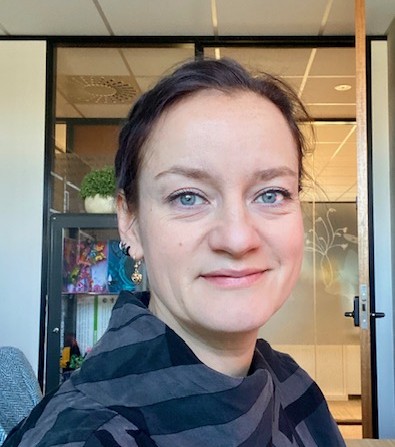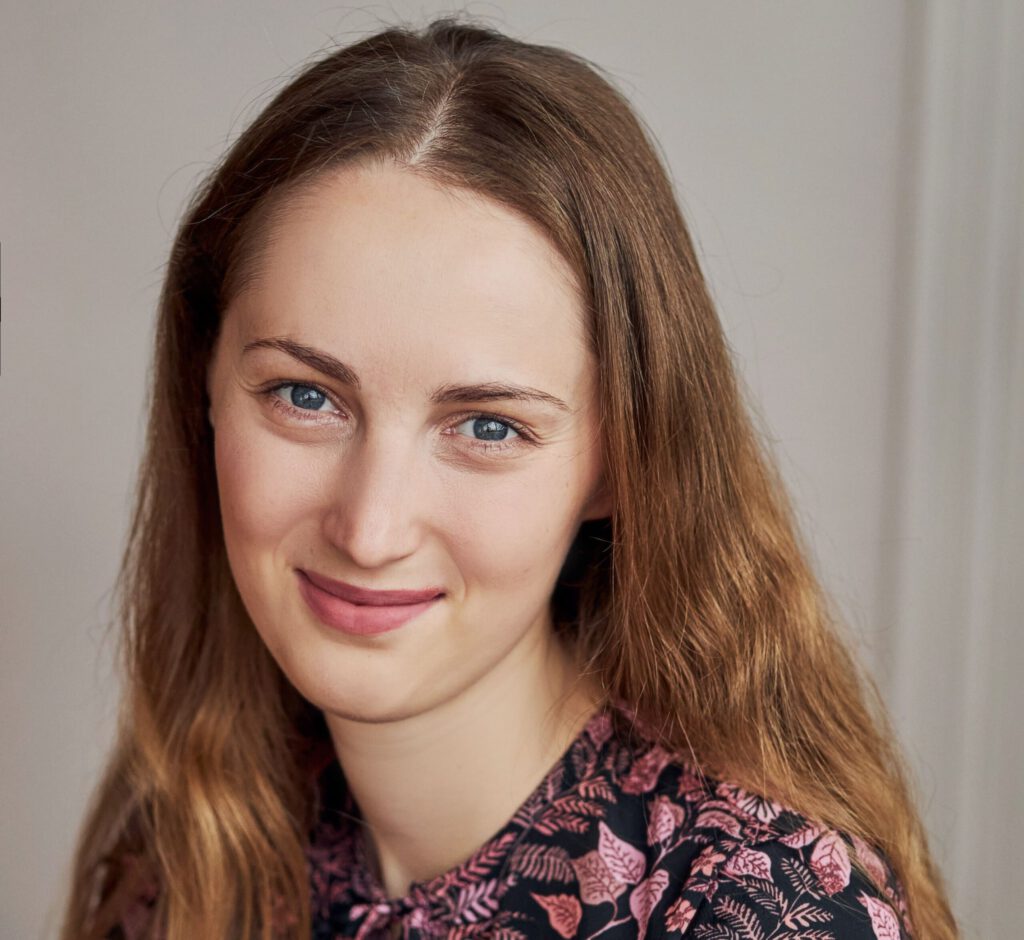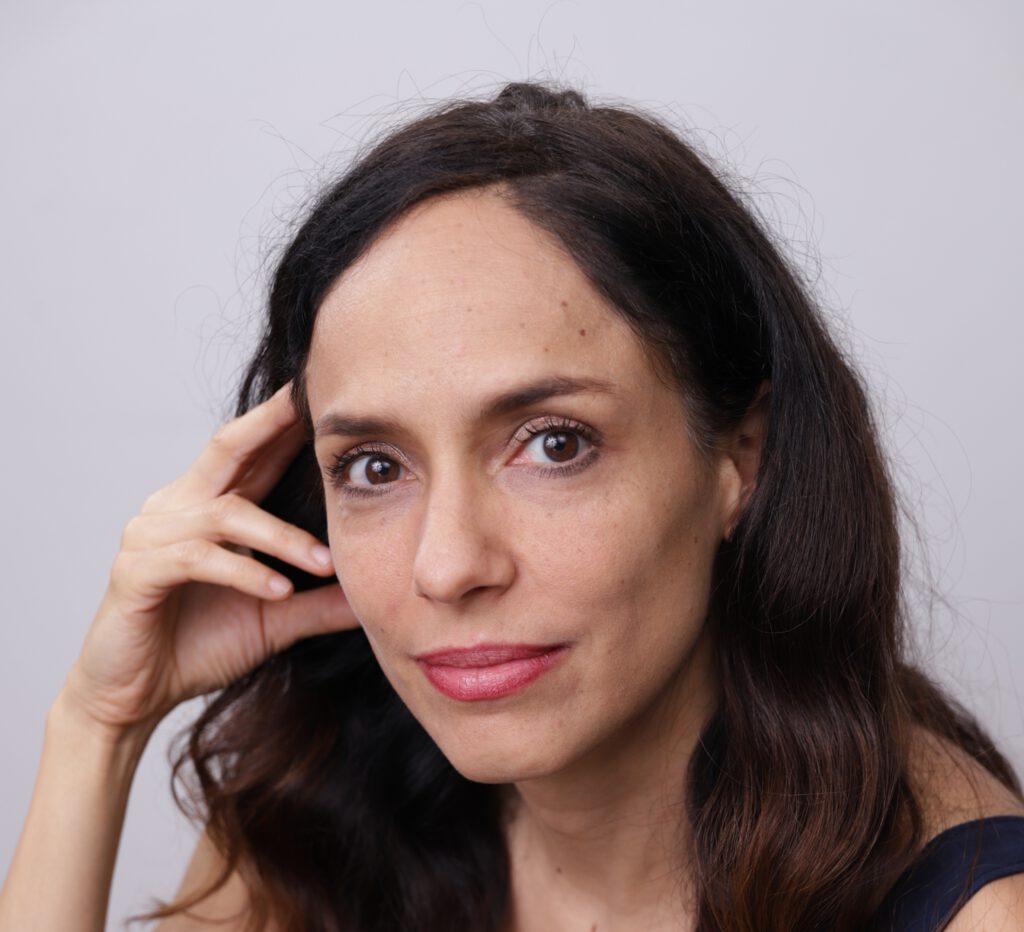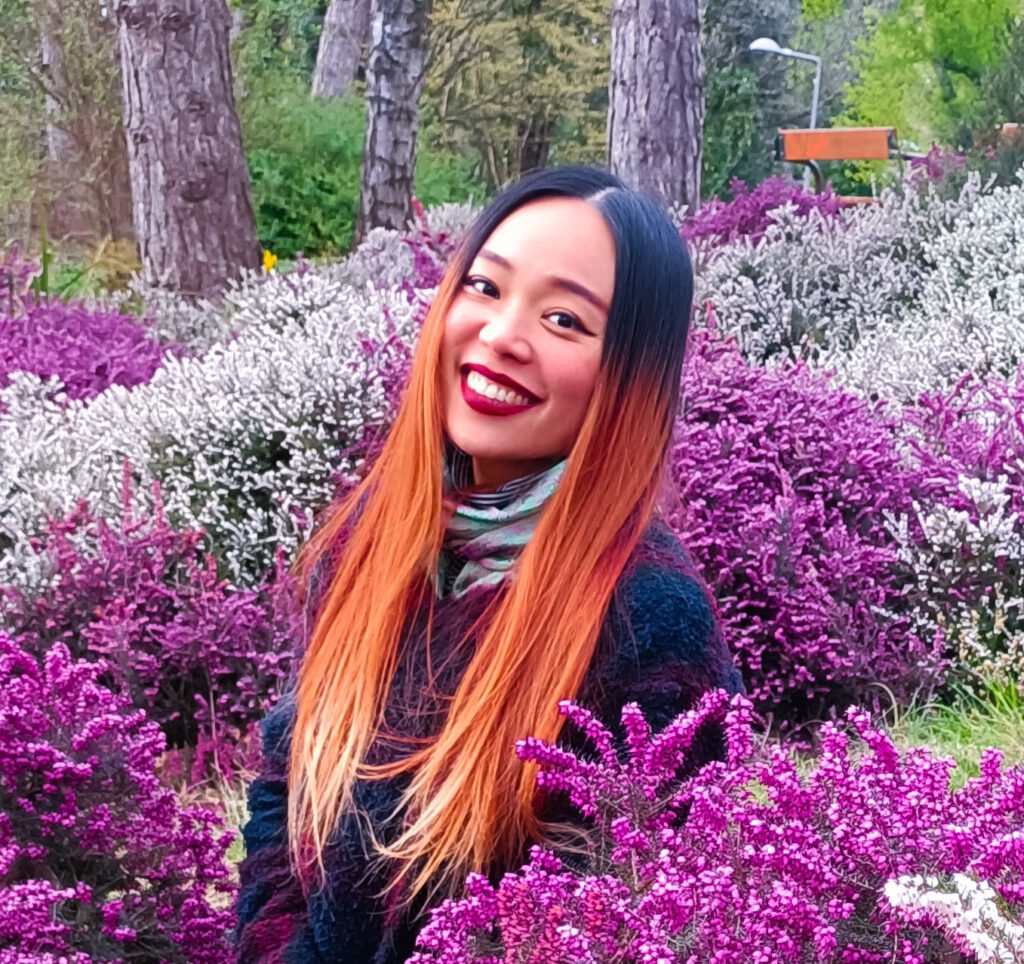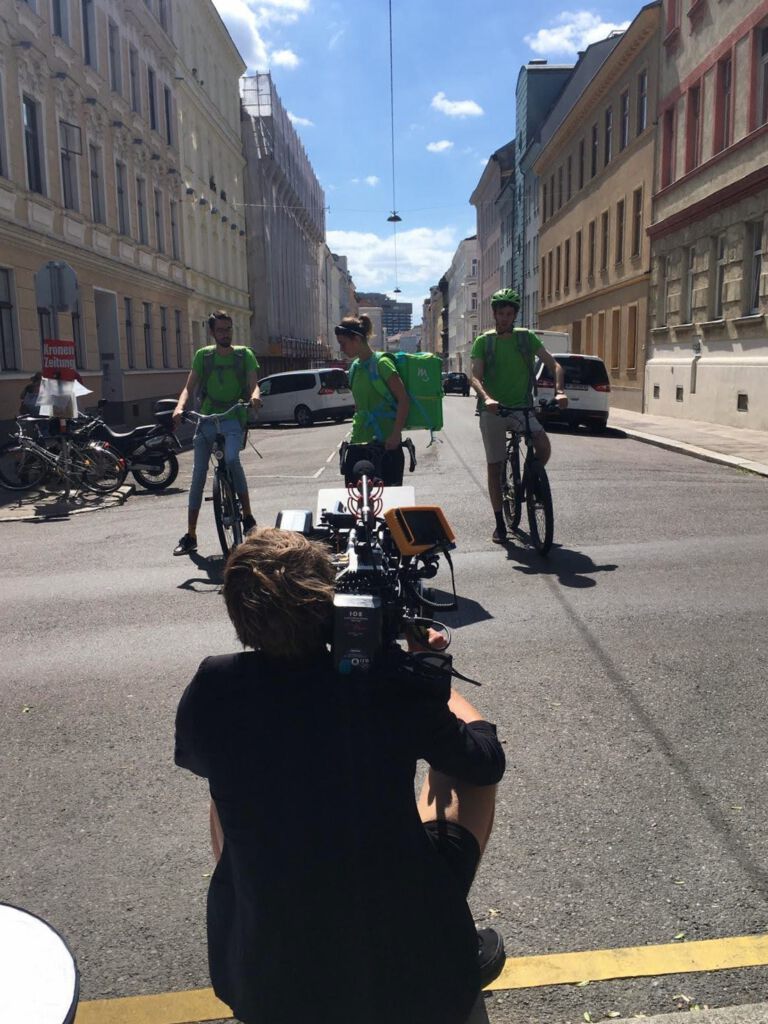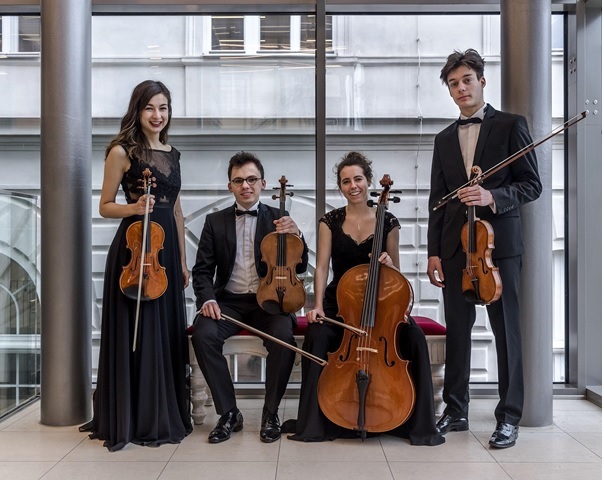A fantastic opportunity to present my work to a new academic audience
My “wunderbare” experience at Department of Music Acoustics – Wiener Klangstil (Institut für musikalische Akustik – Wiener Klangstil, henceforth “the Institut”) at the mdw took place in October 2024, when funding from the ERASMUS+ program gave me the opportunity to spend three weeks collaborating with David Weigl, a long-term colleague and co-author who I have known since our postdoctoral roles at the University of Oxford, UK, a decade ago.

During my visit I was able to extensively engage with the academic community at the Institut: I taught two workshops on the use of Linked Data as an information publication paradigm in the online space. Some of the solutions derived within the context of the workshops will be applied to the projects currently underway at the Institut, but the reach of the workshops was much greater than at, as there were participants also from the Vienna University of Technology, the Österreichische Nationalbibliothek, and the Ludwig Maximillian University of Munich. The conversations carried out as a part of these workshops were also very valuable to me, because although I have used this methodology for over a decade, its applications are always niche to some extent, and the projects and research areas at the provided a new context for this work.


This ERASMUS+-funded trip was a fantastic opportunity for me to present on my work to a new academic audience, and through the exchange of feedback, ideas, and collaborations, to extend my international professional network. I also had the opportunity to participate in a PhD student symposium, finding out about the most cutting-edge research at the Institut, and to provide feedback and comments. The papers I attended were an insight into complex research paradigms: discussing them with my PhD students at my home institution upon my return helped enrich and diversify their research and learning… literally on the other side of the world in Canberra, Australia!
In a similar vein, I was able to serve as a consultant on two projects from the Institut; the Signature Sound Vienna and the E-Laute. There is a clear relevance of these projects to the research agendas of students as my sending institution (the Australian National University). One of the core outcomes of that this trip was that David Weigl and I had the opportunity to initiate a collaboratively written article for the journal Transactions of the International Society for Music Information Retrieval. We are hoping to procure additional funding going forward, to enable us to finalise the paper.
Beyond academic networking, this research trip was a valuable opportunity to engage more widely with the academic landscape in Vienna. This included guided tours of University facilities, social gatherings, and collegial conversations relating to the running of computational labs as a resource to support teaching and research. And what made this particular trip so extraordinary, was not just the access to the locations, the resources, or any of the things we usually write about in applications (although all of those were fantastic!), but the seamless way this particular academic community invited me in and made me a part of their team. I have an enduring love for the city of Vienna, an infinite appreciation of the incredible colleagues there (so intelligent, so knowledgeable about such diverse things from physics to music, and on top of that they’re just so nice as people!), and for Europe in its cultural richness. Multilingualism is such a gift, and it is so clear in a city like Vienna. One of my favourite things is that in my three weeks there, every single person I met was at least bilingual – most people have fluency in three or more languages. And this isn’t basic exchanges like thanking someone who keeps a door open for you or ordering a beer (this is where my German is at) but having fully-fledged academic conversations and giving presentations in another language at a moment’s notice. It is incredible, humbling, exciting, and inspirational.


The ERASMUS+ program is a remarkable scheme. Enabling the international mobility of academics and students has value and benefit that far exceeds the specifics of projects deliverables and extends to the personal, professional, and intellectual growth of those fortunate enough to be able to benefit from it. I have immense gratitude and enthusiasm for the ERASMUS+ program, and hope to apply for it again in the future.
The challenges of the initial set up were not trivial. It took 12 months to establish an inter-institutional agreement that enabled me to take up this opportunity, and I foresee there being further complications for anyone wishing to establish such an exchange program were it to involve students – it is connected to the complexities of different financial set ups particularly in the context of fee-paying students being part of the modus operandi of, for example, Australian universities. My advice would be not to allow these administrative complexities and delays to deter you, as the exchange trip, once possible, is more than worth the effort. I suspect mine was a bit of a worst-case scenario, and throughout it all, the International Office at mdw were utterly fantastic and helped me with great skill and endless patience.


If I can take a moment to reflect on the uniqueness of the work and intellectual richness that is created and enabled by funding sources such as the ERASMUS + program, I would highlight the immense potential interdisciplinary, multinational teams can create, and how such a fantastic and dynamic environments enable ideas to flourish. As people, our thinking is enriched in so many ways in these locations that foster such cultural and academic diversity. Interdisciplinary, cross-cultural, and multilingual research trips provide such a huge added value to the academic community, one which is difficult to quantify to a specific dollar (or euro!) amount. I am incredibly grateful for the funding from ERASMUS + that made this trip possible. I am privileged to have had such an experience. I also have my amazing colleague David Weigl and his invitation to thank for that. I hope to be able to find a way to come back soon.
Vielen herzlichen Dank an euch alle!
Are you a teacher from a non-EU country interested in an Erasmus+ visit at the mdw?

